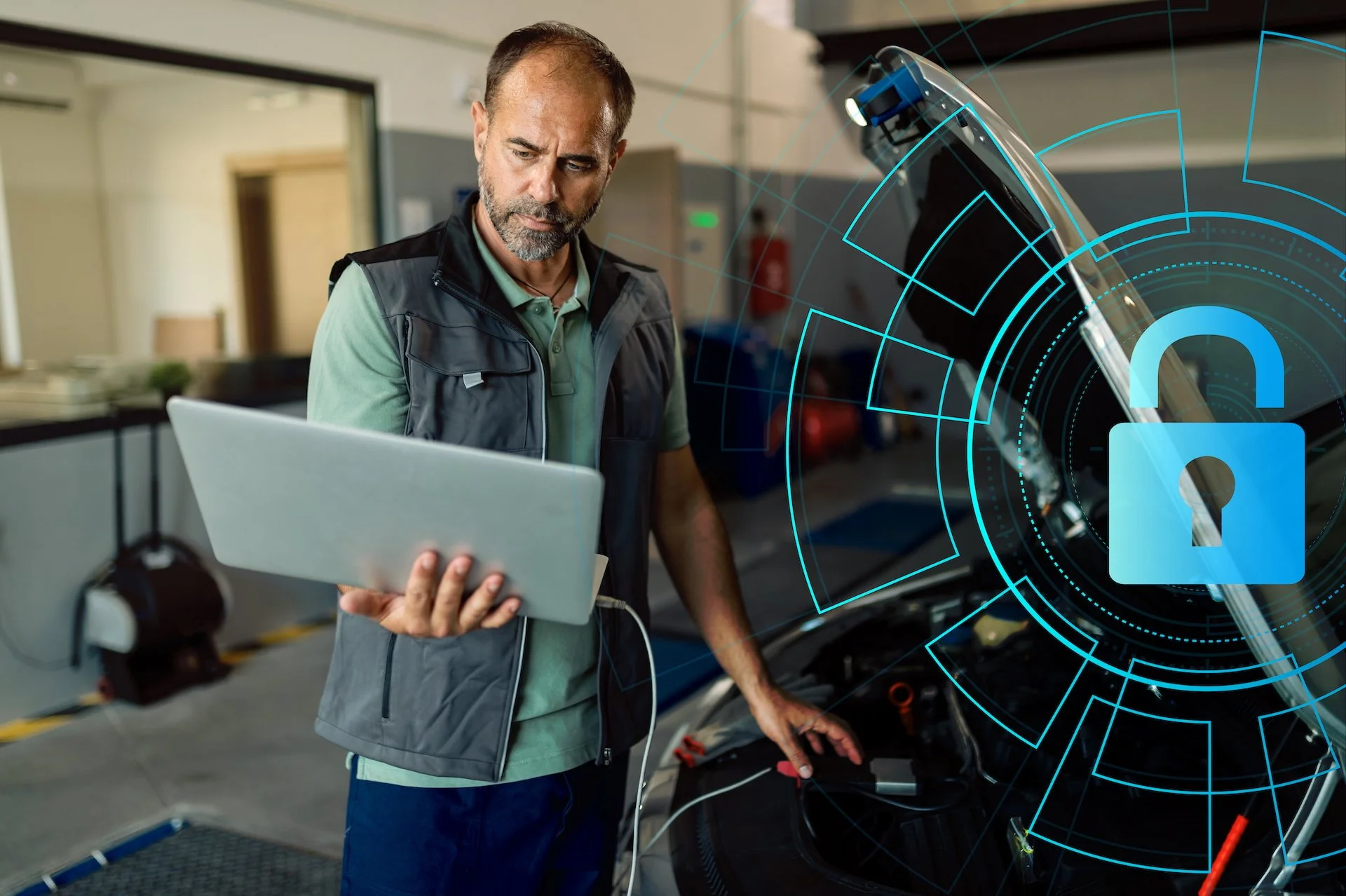The Hidden Threat to Independent Garages in the Age of Cybercrime
In an era where cybercrime lurks behind every digital interaction, it's alarmingly naive to assume that smaller businesses, including independent garages and workshops, are exempt from such threats.
While automotive dealer groups have been the focus of many reported cyberattacks, these are merely the tip of the iceberg. The assumption that independent garages can fly under the radar is not just misguided; it is potentially disastrous for both the business and its reputation.
Recent statistics paint a sobering picture. The UK’s Cyber Security Breaches Survey 2024 revealed that half of all businesses experienced a cyberattack or breach in the past year. These aren't mere anomalies but part of an escalating threat landscape that demands serious attention.
Independent garages, usually categorised as small to medium-sized businesses, are particularly vulnerable. According to reports, 60% of SMEs cease trading within six months of a cyber attack.
Alarmingly, 81% of UK businesses affected by cyberattacks fall into the SME category, and even more tellingly, 97% of such incidents could have been averted with appropriate cybersecurity measures in place.
Cybercriminals are evolving faster than traditional defences can adapt. While computers remain a primary target, pre-installed antivirus software has made them less accessible to attackers. Instead, the real threat now lurks in everyday devices such as phones and tablets—gadgets integral to both our personal and professional lives that often slip through the cracks of a business’s cyber defences.
Their ubiquitous presence, combined with a lack of robust security measures, makes them ideal entry points for malicious hackers.
Consider this—your employees' mobile phones are used for a myriad of tasks from banking to business communications. Yet, they also represent a significant security gap. Cybercriminals exploit easy gateways like unsecured Wi-Fi connections or third-party apps to infiltrate these devices. Once compromised, they can harvest sensitive information through chat messages, emails, or apps.
Some employees have access to a garage’s social media pages or website, viewing and accessing these via their personal devices which increases the risk. Phishing attacks against an employee’s number or email can grant cybercriminals access to sensitive business information or even bypass two-factor authentication, allowing them to infiltrate more secure systems.
A garage owner might argue that their primary focus should be on securing the vehicles themselves. Modern vehicles, with over 100 control units each, present numerous potential access points for cyber attacks. While this is undeniably critical, the broader attack surface extends beyond just the vehicles or even the computers within the garage. It encompasses the entire connected ecosystem.
The automotive industry has reached an inflection point where cyber threats are no longer a distant concern but a present reality. For independent garages, this necessitates a comprehensive understanding of the entire cyber ecosystem. Every Wi-Fi network, every connected device, and every digital interface presents a potential vulnerability. Recognising these potential weak points is the first step toward safeguarding business operations.
Ultimately, the call to action for independent garage owners is clear. While installing antivirus software on devices is the first step towards creating a barrier against cyber intruders, they must consider every devise and touchpoint within their cyber ecosystem to understand the vulnerabilities. Staff also need to be educated on the potential risks and trained to identify a threat.
The consequences of inaction could be dire, affecting not just a garage’s bottom line but their hard-earned reputation.
By taking proactive measures now, they can protect their businesses from becoming another statistic in an increasingly connected world.
Laurence Abbott, Managing Director, Autotech Connect

